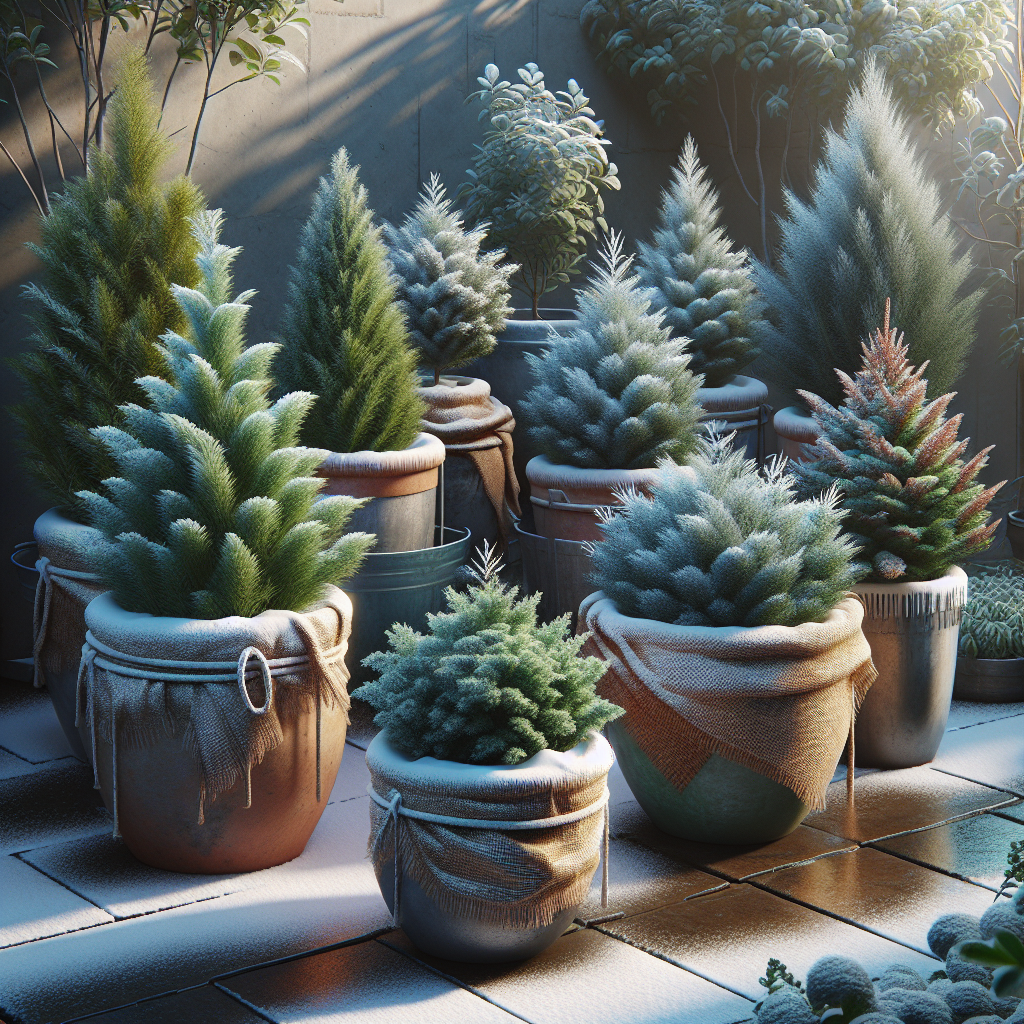Juniper plants are a popular choice for many gardeners due to their hardiness and versatility. These evergreen shrubs are known for their beautiful foliage and ability to thrive in a wide range of climates. However, like all plants, junipers require proper care and attention, especially during the winter months when harsh conditions can take a toll on them. In this article, we will discuss how to care for juniper plants in containers during the winter to ensure they stay healthy and vibrant year-round.
Choosing the Right Container
When growing junipers in containers, it is important to choose the right size and type of container. Junipers have deep roots, so it is crucial to select a container that is deep enough to accommodate their root system. Additionally, make sure the pot has drainage holes to prevent water from pooling at the bottom, which can lead to root rot.
The material of the container also plays a role in winter care. Terracotta pots are porous and can absorb water, which may cause them to crack in freezing temperatures. Consider using plastic or fiberglass containers that are more weather-resistant and less likely to crack in cold weather.
Positioning Your Containers
Junipers require plenty of sunlight to thrive, so it is important to place your containers in a sunny location during the winter months. Position them in an area where they will receive at least six hours of direct sunlight each day. If you live in an area with harsh winters, consider moving your containers closer to a south-facing wall or placing them near a building for extra protection from cold winds.
Protecting Junipers from Frost
Junipers are hardy plants that can tolerate cold temperatures, but prolonged exposure to frost can damage their foliage and roots. To protect your junipers from frost during the winter, consider wrapping the containers with burlap or frost cloth when temperatures drop below freezing. This will help insulate the plants and prevent frost damage.
Watering Your Junipers
Proper watering is essential for junipers’ survival during the winter months. While these plants are drought-tolerant once established, they still require occasional watering during dry periods. Check the soil moisture regularly by inserting your finger into the soil up to your second knuckle. If the soil feels dry, water your junipers thoroughly until water runs out of the drainage holes.
Avoid overwatering your junipers during the winter as this can lead to root rot. Allow the soil to dry out slightly between waterings and adjust your watering schedule based on weather conditions. In general, junipers require less frequent watering during the winter when they are dormant.
Fertilizing Your Junipers
During the winter months, junipers do not require as much fertilizer as they do during their active growing season. Avoid fertilizing your juniper plants from late fall through early spring as this can stimulate new growth that may be damaged by cold temperatures.
If you want to give your junipers a boost before winter sets in, consider applying a slow-release fertilizer in early fall. This will provide nutrients that will be slowly released over time without stimulating excessive growth.
Pruning Juniper Plants
Winter is an ideal time for pruning juniper plants as they are dormant and less likely to suffer from stress or damage compared to other times of year. Remove any dead or diseased branches with sharp pruning shears and shape your juniper shrubs as desired.
When pruning juniper plants in containers, be mindful of not cutting back too much foliage as this can weaken the plant’s overall health. Instead, focus on removing small amounts of growth each year to maintain its shape and encourage new growth.
Protecting Your Junipers from Winter Pests
While junipers are relatively pest-resistant compared to other plants, they can still attract common garden pests such as spider mites or scale insects during warm spells in winter. Keep an eye out for any signs of pest infestations such as yellowing foliage or sticky residue on leaves.
To protect your juniper plants from pests during the winter months, consider applying an insecticidal soap or neem oil spray as needed. These natural remedies are safe for use on edible crops and ornamental plants alike and can help control common garden pests without harming beneficial insects.
Conclusion
In conclusion, caring for Juniper Plants in containers requires some extra attention during the winter months but with proper care and maintenance you can ensure that they thrive year-round Advice discussed above outlines all necessary steps needed including choosing appropriate container sizes positioning arrangements protecting against frost watering schedules fertilization pruning techniques avoiding common pests By following these guidelines you can enjoy healthy vibrant Juniper shrubs throughout even harshest winters













